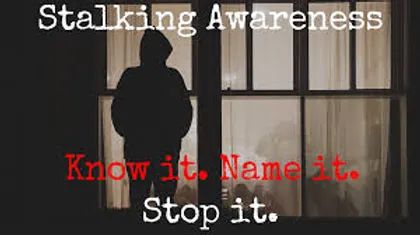President Biden Proclaims the Importance of Recognizing Stalking as a Serious Issue

In a bid to increase awareness and combat the alarming rates of stalking in the United States, President Biden has officially declared January 2024 as National Stalking Awareness Month. This proclamation aims to shed light on the prevalence of stalking and its devastating effects, while also encouraging victims to come forward and seek support.
According to a report from the Bureau of Justice Statistics (BJS), approximately 1.3% of Americans aged 16 and older, translating to 3.4 million people, were victims of stalking in 2019. While these numbers have slightly declined from 1.5% in 2016, it is crucial to realize that stalking remains a pervasive issue in society.
Traditionally, stalking is characterized by the perpetrator following and monitoring their victims. However, with the advancement of technology, stalking now extends beyond physical presence. Unwanted phone calls, messages, emails, and internet messages have become common methods employed by stalkers. It is essential to acknowledge that both traditional and technological methods of stalking can have harrowing psychological effects on the victims.
Although stalking affects individuals of all genders, statistics reveal that women are victims of stalking more than twice as often as men. It is important to note that these figures reflect reported incidents, and the actual number of male victims might be underrepresented due to societal expectations and stereotypes. Addressing this gender disparity and ensuring equal support for all victims is imperative in combating stalking effectively.
Research indicates that individuals aged 18 to 24, mainly college students, experience the highest rates of stalking. This places students on college and university campuses at a heightened risk of becoming victims. Shockingly, most college students are stalked by someone they know, often fellow students. Educational institutions can play a vital role in preventing and addressing stalking incidents through comprehensive campus programs and thorough investigations.
Despite the prevalence of stalking, a significantly low percentage of victims choose to report the crime to the police. In 2019, only 29% of stalking victims reported their victimization. Many victims cited a lack of importance or urgency as the reason for not reporting. It is crucial to educate victims about the potential dangers associated with stalking and empower them to report incidents promptly.
Legal definitions of stalking vary across jurisdictions, but it is generally characterized as a pattern of behavior directed at a specific person that would cause fear in a reasonable individual. Stalking is considered a crime in all 50 states and at the federal level, emphasizing its dangerous and potentially lethal nature. Recognizing stalking as a serious offense is essential in enforcing the appropriate legal measures to protect victims and prevent further harm.
As we observe National Stalking Awareness Month in January 2024, it is crucial for individuals, communities, and institutions to rally together against this pervasive issue. By promoting awareness, providing support to victims, and holding stalkers accountable, we can strive towards a society free from the fear and harm caused by stalking.
Stalking is a serious crime that affects millions of individuals in the United States. As President Biden proclaims January 2024 as National Stalking Awareness Month, it is our collective responsibility to acknowledge the prevalence of stalking and work towards ending this alarming behavior. By fostering awareness, providing support to victims, and implementing effective prevention measures, we can create a safer environment for all.









